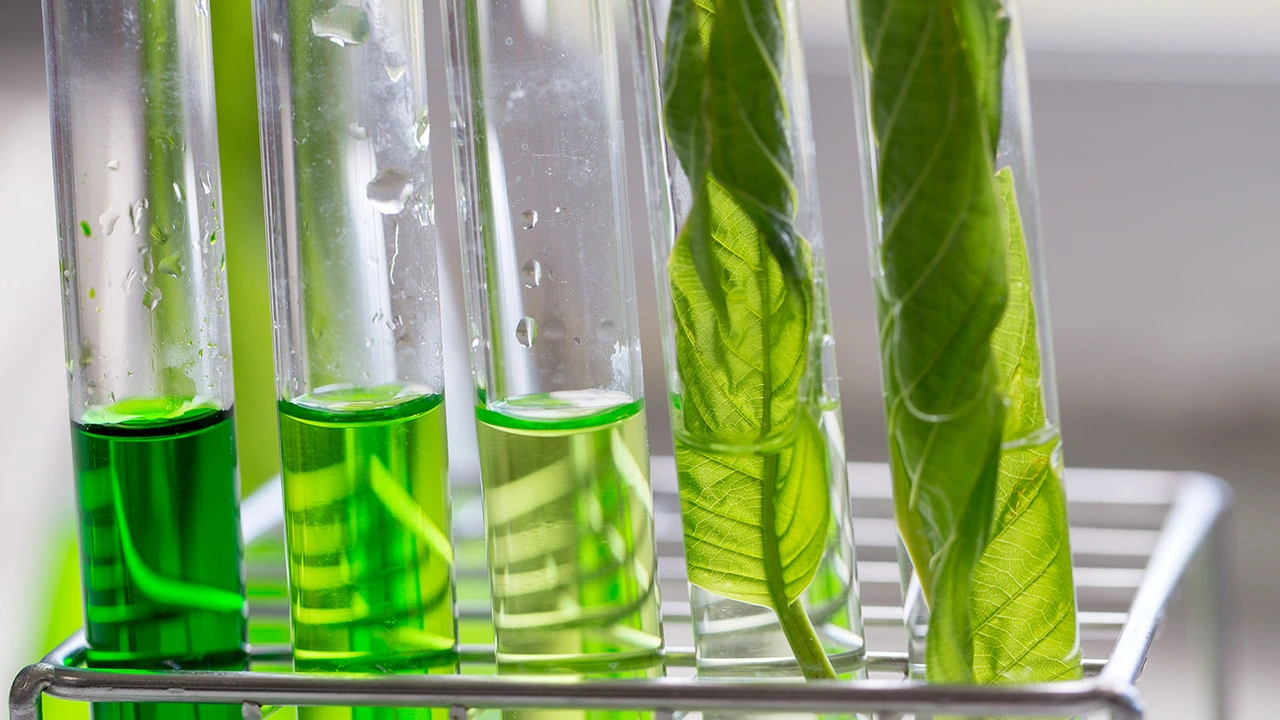Food & Climate
Domestic companies are seeking to introduce the biodegradable plastic industry that turns into fertilizers in natural conditions to Egypt. Their success represents an important step towards preserving the environment and combating climate change, in addition to contributing to the availability of healthier food.
The CEO of “Radi Plast”, Engineer Ahmed Rady, told the “Food & Climate” platform that his company seeks to produce a type of plastic bags called “Home Compost”, according to the approved Egyptian specification for the production of this type of bioplastic, under the name Specifications for plastics suitable for home composting (8570/2022).
Radi explained the advantages of this type of bioplastic that turns into fertilizers in natural conditions, and that it is produced from materials that mimic nature; it is safe for agricultural products and human food when it decomposes in the soil, and the bags made from these materials are harmless when used to package food products in grocery stores and supermarkets.
However, the problem facing his company and other companies to start manufacturing it is the high prices of these materials, which affects the cost of the final product, and there is a need for financing to import the raw materials used in manufacturing this type of biodegradable plastic that turns into fertilizers.
Radi said that if a kilogram of regular plastic that the current industry in Egypt relies on (a petrochemical material) is about $1.0, then the price of the same weight of raw biodegradable plastic that turns into fertilizers under normal circumstances will range between $2.0 and $4.0.
He pointed out that despite this, he seeks to manufacture this type of plastic by obtaining financing to support this industry, “I am fully aware that every commodity has a customer or client due to the different classes of society, meaning that the market exists, and the important thing is the availability of the product.”
He explained that the future of the plastic industry lies in such types of environmentally friendly plastics, because they are linked to exports, and the world is shifting away from materials that are harmful to the environment.
He gave the example of the European Union, which will begin imposing a carbon tax on most imports into its country in 2026.

Biodegradable plastic that turns into fertilizers
Plastics and polymers consultant and former director of the Plastics Technology Center, Dr. Ahmed Abdelkader, told the “Food & Climate” platform that the plastics industry sector is one of the most important sectors in Egypt, and is based on a number of raw materials that are produced through the petrochemical industries led by Egypt in the African continent.
He explained that the environmental problems resulting from plastic are limited to a number of products such as packaging materials; most notably the single-use light plastic shopping bag that is distributed for free when purchasing goods. This bag is made of traditional plastic that does not decompose over time and causes environmental pollution due to the difficulty of collecting and recycling it.
He added that there were previous attempts to use traditional plastic after adding some chemicals to it when manufacturing plastic bags to break it down after use without decomposing. Scientific reports have proven that this poses a greater risk to the environment and human health, and it has been recommended to ban its use in most countries, including Egypt.
Abdelkader stressed that the use of biodegradable plastic technology that turns into fertilizers is one of the most important solutions to address the problem of plastic pollution, and many countries around the world are turning to it. The use of reusable bags is also one of the solutions to reduce light plastic bag waste.
Abdelkader explained that the different types of biodegradable plastic raw materials must be taken into consideration, and that what suits local conditions economically and technically and is compatible with the Egyptian specifications issued in this regard must be chosen.
The Australian Experience
Growing environmental concerns have driven a surge in bioplastics, but unclear labelling for disposal is creating challenges, according to a new report from Australia’s national science agency, CSIRO.
The State of bioplastics in Australia report found consumer confusion over bioplastics, with many bioplastic items ending up in landfill or contaminating recycling and composting streams.
Dr Albert Ardevol, CSIRO’s Plastic Packaging Research Lead, said bioplastics offer a promising solution to reduce fossil fuel dependency, mitigate plastic pollution, and optimise material circulation.
“Bioplastics cover a wide range of polymer types and uses, but there is confusion around terminology and how to process bioplastics after use,” Dr Ardevol said.
“Australia doesn’t have standardised labelling so it’s hard for consumers to understand the different types of materials and how they integrate into existing waste management systems.
“Bioplastics are often a more sustainable alternative. However, if disposed of incorrectly, bioplastics can contaminate recycling and waste streams.
“A large portion of bioplastics end up in landfill, where they can decompose and release methane emissions. This negatively contributes to waste and climate change, and does not achieve circularity.”
Plastics derived from fossil fuels account for 3% of greenhouse gases. With global plastic production currently sitting at 460 million tonnes and estimated to double by 2040, demand for sustainable and bio-based alternatives is increasing.

Global bio-based plastic production has more than doubled since 2010. Close to half of the 2.18 million tonnes of bioplastics manufactured in 2023 was for packaging, the most prevalent type of plastic pollution.

